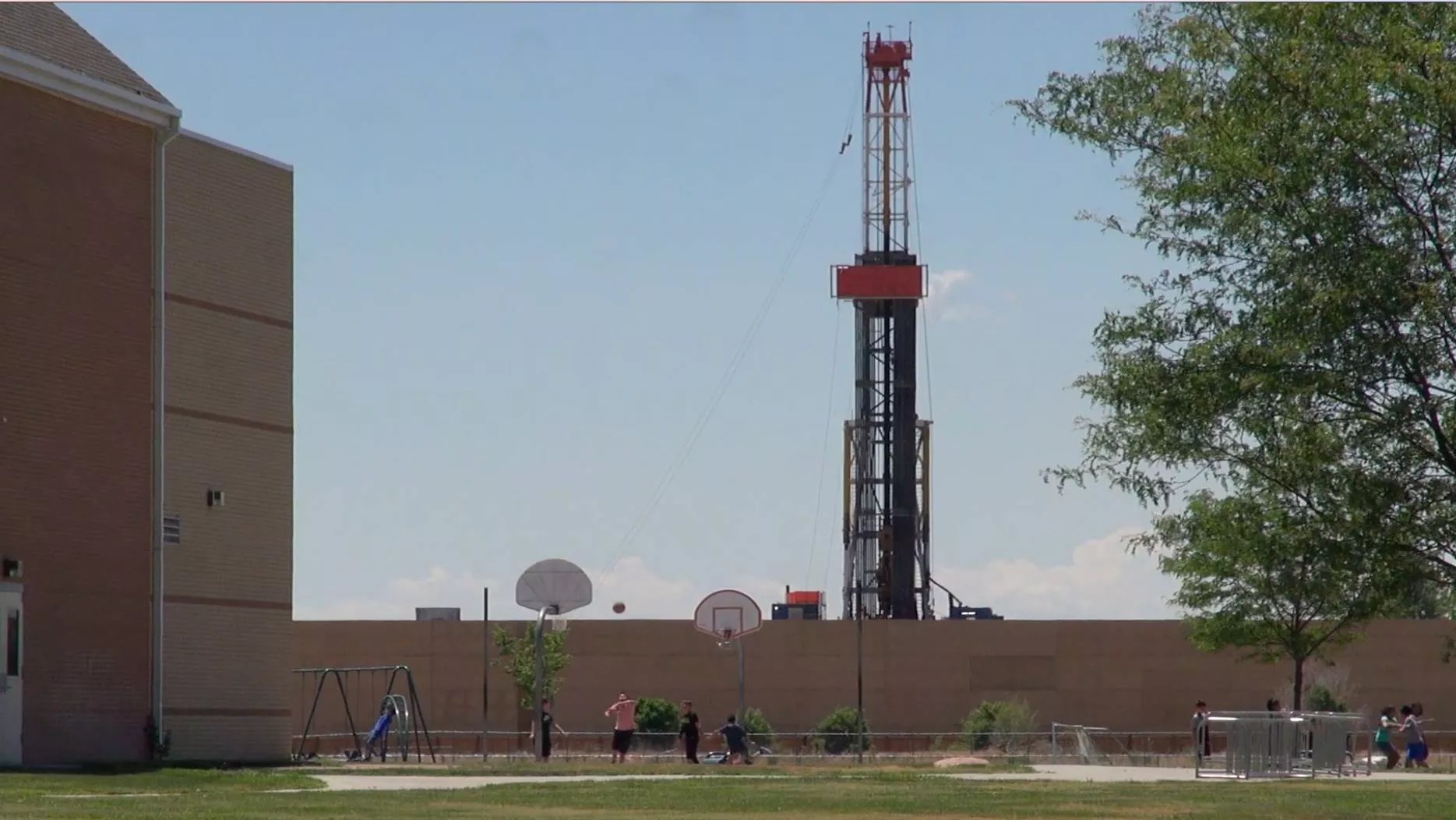
Lisa Gross

Audio By Carbonatix
Two Colorado nonprofits are calling for a reworking of the Environmental Protection Agency‘s community air-monitoring grant process after they were forced to back out because of requirements that each feels are too rigid and onerous.
The EPA announced last November that it would dish out approximately $3 million to fund seven air monitoring projects across the country, including two here in the Centennial State.
But now the groups involved in Colorado are unable to move forward because of the stiff restrictions that go along with the funding.
“It seems like they did no revision to their normal process that they might do with an enormous institution like a university or a county,” says Micah Parkin, executive director of 350 Colorado – one of the former grantees. “If the EPA is going to offer these as community grants to small nonprofits, they really need to change their process, because it’s unfair.”
Parkin estimates that 350 Colorado, a statewide environmental nonprofit, spent hundreds of staff hours worth over $25,000 in wages trying to navigate the EPA grant process after being selected. The group doesn’t have an EPA grant expert, and Parkin says that without one, it was impossible for it to meet all of the requirements needed to go through with the process.
“For every hoop we jumped through, there were – it seemed like – twenty more,” she tells Westword. “And eighty-page documents we had to read to understand their processes and procedures. Frankly, we just don’t have the time or the staff or the resources to be able to navigate all of those bureaucratic hoops.”
350 Colorado was set to get $498,537 to monitor air pollution near two schools in Greeley, including the Bella Romero Academy, where the community has long opposed fracking wells being built next to its playground.
This month, 350 Colorado decided it would stop pursuing the grant.
Cultivando, a nonprofit focused on serving the Latino community in Adams County, was awarded $500,000 this year to continue its air-monitoring project near the Suncor Oil Refinery in Commerce City and Denver’s Globeville, Elyria and Swansea neighborhoods.
In July, it decided to pull out for the same reason as 350 Colorado: The EPA did not seem willing to make what the organization considers reasonable accommodations to account for the fact that Cultivando has just eight full-time staffers and three people who work part-time.
“Systems that government sometimes has in place are really burdensome and not at all in alignment with the way that nonprofit organizations work,” says Olga Gonzalez, executive director of Cultivando. “They wanted this really detailed accounting system and policies and procedures that we just don’t have. It would have taken time for me to research all of that and just create one for the purposes of getting the funding.”
Additionally, there were extensive post-project reporting measures that would have required the nonprofit to build even more company infrastructure it didn’t have, according to Gonzalez. She says it is used to keeping documentation – since as a community nonprofit, the organization works to show accountability to those it serves – but this was on another level.
Both groups had set aside less than 10 percent of their grant money for staff hours, with 350 Colorado reserving just $27,000 for employee pay and Cultivando reserving only $40,000.
In both cases, the remaining funds would go to BoulderAIR, the entity that would install and complete the monitoring. However, it turned out that a competitive bid process would have to be held for the monitoring work. The bidding would take additional unplanned staff hours that the nonprofits hadn’t budgeted for.
“At first there were a couple of staff members working on it,” Parkin says. “Then I was really trying hard over this summer and early fall to get through the process and trying to expedite it, so I ended up putting five or six staff members on it, redirecting time from other activities they were supposed to be doing.”
She was nervous that 350 Colorado would miss a detail and lose out on the funding even with all the extra work. “It could just be a real pickle,” she concludes.

Cultivando would have continued its air monitoring at Suncor had the grant gone through.
Anthony Camera
According to Gonzalez, the EPA was unwilling to work with Cultivando on solutions to decrease the extensive accounting burdens.
“There’s a difference between things being available and being truly accessible,” she says. “If you want to move forward in a way that is accessible to most small nonprofits, then take the time to listen to us and see how we normally do business ourselves and adapt. These systems are antiquated.”
According to EPA spokesperson Richard Mylott, the agency was willing to work with Cultivando and 350 Colorado; in fact, it “offered Cultivando and 350 Colorado extensive support as they attempted to work through various concerns in meeting federal grant requirements,” Mylott says.
“We will continue to work with both groups in the future on potential funding opportunities,” he tells Westword.
The requirements for federal grants can’t be waived because they are needed to ensure appropriate use of taxpayer dollars, Mylott adds. They are the same as those for all grants awarded by the EPA.
“The agency has been an active partner in providing these air-monitoring grants to organizations for successful projects across our region and nation,” he says.
However, these organizations argue that requiring small nonprofits to account in exactly the same way as larger entities isn’t a fair use of time or money. Both executive directors say that in their work with other foundations, there is an understanding of accommodations that community nonprofits might need that the EPA didn’t exhibit.
“Most foundations get it, and so that was one of our recommendations, is that they work with other foundations who work frequently with small nonprofits to understand how they are organized in their grant-making processes,” Parkin says.
Along with that suggestion, the groups offer five others:
First, there is addressing the mismatch between the grant process and the reality for community nonprofits.
Next, there’s making sure all requirements to receive funds be communicated during the initial application process to avoid updates that greatly increase staff time. “Make them really obvious so that other nonprofits don’t get into the process assuming it’s going to be like most grants, only to find out it’s a year’s worth of trying to actually get the funding – and then, even when you get it, it’s going to be an enormous administrative burden,” Parkin says.
Third, the two groups suggest that any processes using online systems should take no more than a day of staff time.
Fourth, each asks that accounting and reporting requirements be simplified with small nonprofits in mind.
Lastly, they implore the EPA to consider whether it is truly prepared to treat small nonprofits as partners in continued grant work. “The current process is broken for us. It does not work,” Parkin blasts. “It’s been pretty shocking.”
She says that individual EPA staff members that 350 Colorado worked with were great, but even that couldn’t make up for the endless organizational red tape. Now, Parkin isn’t sure whether 350 Colorado will ever apply for EPA grants again in the future without a revision to the grant-making process. She urges other executive directors to use caution.
Luckily for Bella Romero, Colorado State University is going to pursue air monitoring there, so the community won’t lose out despite the unsuccessful EPA grant process.
For the people around Suncor, there is still air monitoring done through the state and the refinery itself, but Gonzalez says Cultivando is hoping to move beyond air monitoring to more impactful actions – like pushing the state to use air-monitoring data differently in permitting and helping community members stand up for themselves.
“We are adaptable, and we need government that is adaptable and willing to truly partner with community-based organizations,” Gonzalez says. “As nonprofits, we’re always asking to learn how funders work and what they want and what they value. I would ask that the EPA do the same.”